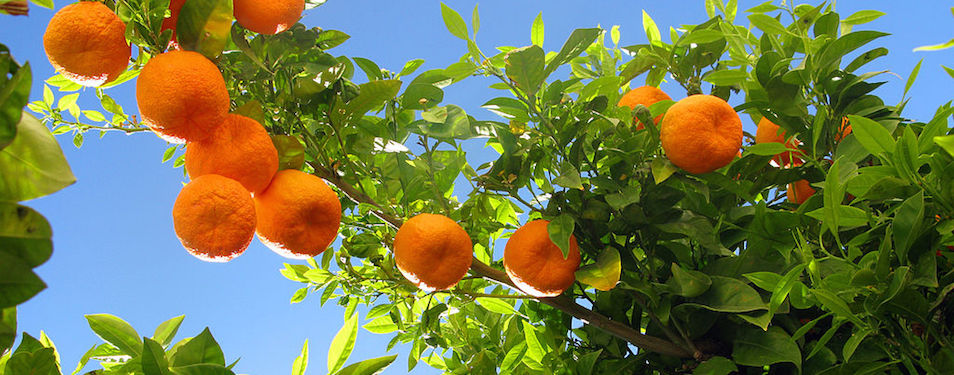Blog
Training the saints to certification in biblical counseling
How Command to Bear Good Fruit Helps Me Counsel
![By Ronnie Macdonald from Chelmsford, United Kingdom (Ronda 08 Orange Tree Uploaded by russavia) [CC BY 2.0 (http://creativecommons.org/licenses/by/2.0)], via Wikimedia Commons](https://rodandstaffministries.org/wp-content/uploads/2016/02/20160212_HowCommandToBearGoodFruitHelpsMeToCounsel.jpg)
By Ronnie Macdonald from Chelmsford, United Kingdom (Ronda 08 Orange Tree Uploaded by russavia) [CC BY 2.0 (http://creativecommons.org/licenses/by/2.0)], via Wikimedia Commons
By Shawna Barnard
I’ve been told that you begin to read the Bible differently when you start counseling. I started the supervision phase of becoming an ACBC certified counselor about four weeks ago, and that statement has already proven to be true. Every single sentence suddenly becomes material for a future counseling session, and every single sentence begs the questions (more so than before): “How do I obey?” and “How do I help others obey?” Here’s how God’s command to be a good tree that bears good fruit is helping me learn how to counsel.
Command: Do Good Works and Bear Good Fruit
In Matt 5:16 Jesus commands his disciples, “Let your light shine before others, so that they may see your good works and give glory to your Father who is in heaven.” Earlier, John the Baptist tells the Pharisees and Sadducees to bear fruit in keeping with repentance or they would be thrown into the fire (3:8, 10). Later, we learn that only those who do the will of Jesus’ Father will enter the kingdom of heaven (7:22). The conclusion seems to be that doing good works and bearing good fruit is doing the will of the Father. Therefore, those who do good works and bear good fruit will get into the kingdom.
Caution: Not All Works Are Good, Not All Fruit is Good
Then Jesus gives this startling example of many people doing mighty works in Jesus’ name but not being accepted into the kingdom. “On that day many will say to me, ‘Lord, Lord, did we not prophesy in your name, and cast out demons in your name and do many might works in your name?’ And then I will declare to them, ‘I never knew you; depart from me, you workers of lawlessness’” (7:22-23). What’s going on here? Is Jesus contradicting Himself?
In chapters 5-7 we begin to see that although some works look the same outwardly (e.g., giving to the needy, fasting, praying, prophesying, etc.), they can be of a completely different kind. This begs the question, “What is a “real” good work? How can I do good works, bear good fruit, and how can I tell the difference? ”
Conundrum: Be A Good Tree that Bears Good Fruit
Jesus helps us see the difference. “So, every healthy tree bears good fruit, but the diseased tree bears bad fruit” (7:17). Grapes can’t be picked from thornbushes nor can figs be picked from thistles (7:16). Jesus says the fruit you bear depends on the kind of tree you are. In other words, the kind of tree I am determines the kind of fruit I bear. Therefore, if I want to bear good fruit, I must be a good tree.
So, how can I bear good fruit? Jesus helps us with the answer again: “A healthy tree cannot bear bad fruit, nor can a diseased tree bear good fruit” (7:18). How can a diseased tree bear good fruit? It can’t. How can a thornbush bear grapes. It can’t. Therefore, if you aren’t a good tree, you can’t bear good fruit.
Jesus’ choice of words is very illuminating here. This “cannot” is a matter of ability, not potentiality. A diseased tree has neither the ability or power by “virtue of its own ability and resources ” to bear good fruit (G #1410; Vine’s Expository Dictionary of NT Words). In order for a bad tree to bear good fruit, God has to make the bad tree into a good tree. The bad tree has to be made into a new creation (2 Cor 5:17-18).
John the Baptist commanded the Pharisees and Sadducees to do the impossible: “Bear fruit in keeping with repentance” (3:8). Only those that God makes into a new creation will respond to the call of repentance and bear its results—good fruit. Because God has made them into good trees, they will bear good fruit.
Conclusion: Only Good Trees Glorify God
Good works that glorify the Father only come from good trees, and bearing good fruit is a natural consequence of being a good tree. Therefore, unless you are bearing fruit as a result of being a good tree, Jesus will tell you to depart from Him. Because bearing good fruit comes from being a good three, good works are motivated by love for God and others because of what God has done. Good trees will cut off (i.e., repent) any bad fruit left over from its bad-tree days, and the fruit bearer’s hope will not be in the fruit born but in God who turned it into a good tree.
Counseling Considerations
God’s impossible command to be a good tree that bears good fruit is helping me learn how to counsel others. Here are some of the points I wrote down for me to consider during the supervision phase:
- Unless God has made the counselee into a good tree, I cannot expect the counselee to respond to the things of the Spirit of God (1 Cor 2:14). Conversely, if God has indeed made the counselee into a good tree, I can expect the counselee to respond to the Spirit.
- Seeing the counselee bear good fruit by the Spirit through their obedience helps them to be assured of their salvation (Rom 8:12-17; 2 Peter 1:10) and is to be celebrated for sure. I must, however, be careful to demonstrate that the subject of the celebration is about God—who He is, and what He has done for their salvation and sanctification. Furthermore, while bearing good fruit is evidence of being a good tree, the counselee’s hope is not in the good works themselves. Rather, the counselee’s hope is in Christ’s righteousness alone.
- It’s important to help the counselee see where they might be placing their trust in Jesus + something (i.e., a seemingly “good” work). I’ve done this in my life by asking my soul questions like these regarding good works:
- Am I trying to impress God or others?
- Am I trying to appease God or others?
- Am I making up for sins I committed yesterday?
- Am I stockpiling good works to make up for sins I might commit tomorrow?
- Do I want to gain favor with God that’s entirely my own, even if the portion that is entirely my own is only .0000001% of Jesus’ portion?
- Am I trying to be a “Teacher’s pet” ((i.e., God’s pet)?
- Am I trying to be “Daddy’s favorite” (i.e., God’s favorite)?
- Am I trying to run the race with an eye not to receive the prize (the inheritance—Christ Himself) but with an eye to (1) beat others or (2) impress God by coming in first place?
